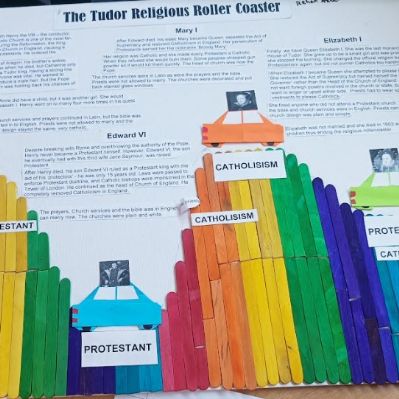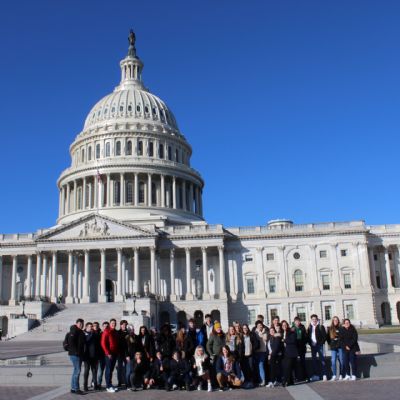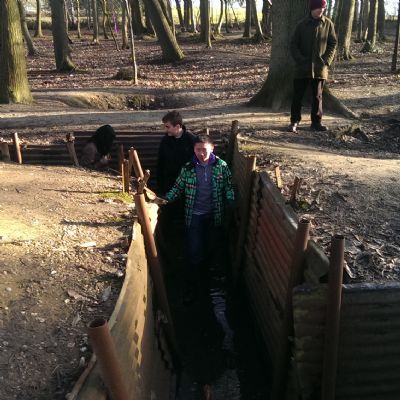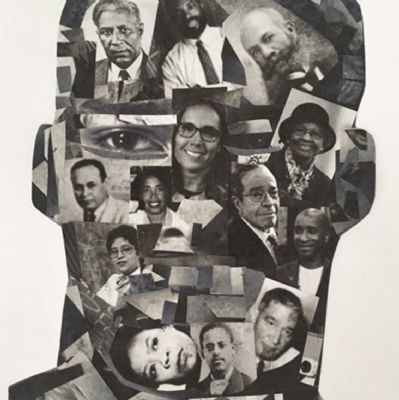History
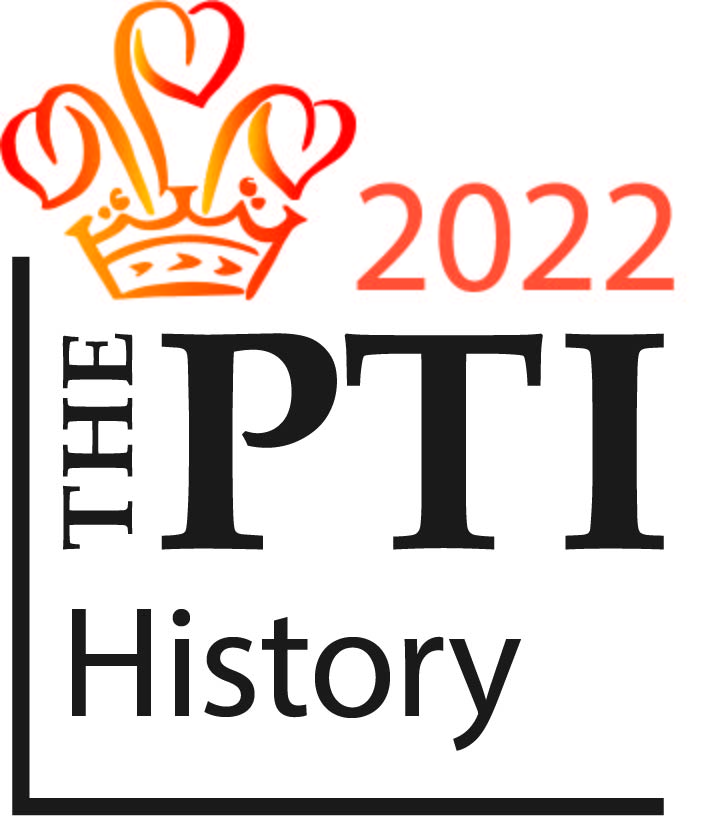
Welcome to the History Department at Bexley Grammar School!
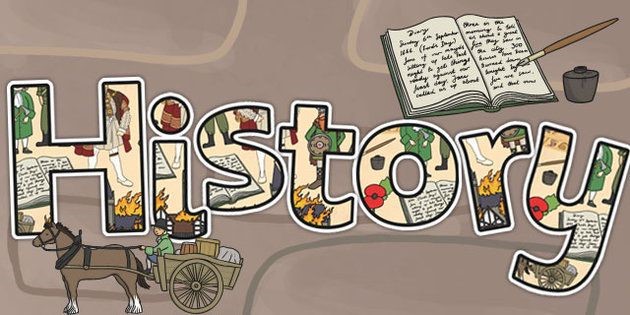
The History Department offers a broad range of topics for students from the Norman period up to the current day with there being a focus on cultural and social change throughout this period. Students are provided with opportunities to investigate what life was like for individuals and societies in the past and how major events shaped the world in which they lived. The curriculum is reviewed on a regular basis, to make it relevant and appropriate for students in the 21st century reflecting the diverse nature of society.
A skills based approach to the subject is followed to enable students to become independent learners and develop their intellectual curiosity for the past through questioning key aspects of the past through the use of evidence. Over the course of their studies students are able to develop and enhance their skills of empathetic awareness of the various topics which are studied.
A range of opportunities are provided by the department for students to extend their understanding of the past beyond the classroom through a series of extra-curricular activities such as the Horrible Histories Club at Key Stage 3 together with a range of day trips including Dover Castle (Year 7), Battlefields of the First World War at Ypres (Year 9) and the Imperial War Museum (Year 10). For the most adventurous residential trips are offered to Berlin and Krakow (Year 10) and Washington DC and New York (Year 13) to consolidate aspects of the examination courses for GCSE and the International Baccalaureate.
The History Department has its own subject prefects in the Sixth Form who play a key role in supporting students particularly as part of the Horrible Histories Club for Key Stage 3.
Key Stage 3
Over the course of Key Stage 3 students follow the core components of the National Curriculum in History alongside smaller units which have been devised by the History Department with the purpose of providing them with breadth and depth of historical knowledge alongside the development of a range of key skills in relation to the subject.
Year 7:
- What is History? (Online historical skills unit)
- The Norman Conquest
- The Middle Ages
- Castles in the Middle Ages
- King John and Magna Carta
- The Native Americans
- The Tudors and the Reformation
- Migration in History
Year 8:
- The English Civil War
- Cromwell and the Restoration
- The French Revolution and Napoleon
- African Civilisations before the 16th Century
- The British Empire and Slavery
- The Industrial Revolution
- Individuals of Historical Significance
- The First World War
- Woman’s Suffrage in Britain
- Black Civil Rights in Britain
- African-American Civil Rights in the USA
- Turning Points in World War II
- The Holocaust
GCSE History
For GCSE History the Edexcel course is followed by the department with thematic, early modern and modern topics being followed by students over the duration of the two year course. Over the course of their studies students are provided with opportunities to enhance the skills of independent learning developed at Key Stage 3 for the purposes of the final examinations at the end of Year 11.
History of Medicine in Britain 1250 to the Present:
- Medicine in Medieval England 1250 to 1500
- The Medical Renaissance in England 1500 to 1700
- Medicine in 18th and 19th Century Britain 1700 to 1900
- Medicine in Modern Britain 1900 to the Present
- Surgery on the Western Front in World War I
Weimar and Nazi Germany 1918 to 1939:
- The Weimar Republic 1918 to 1929
- Hitler’s Rise to Power 1918 to 1933
- Nazi Control and Dictatorship 1933 to 1939
- Life in Nazi Germany 1933 to 1939
Superpower Relations in the Cold War 1941 to 1991:
- The Origins of the Cold War 1941 to 1958
- Cold War Crises 1958 to 1970
- The End of the Cold War 1970 to 1991
- Queen Government and Religion 1558 to 1569
- Challenges to Elizabeth at Home and Abroad 1569 to 1588
- Elizabethan Society in the Age of Exploration 1558 to 1588
IB HISTORY and ib global politics
IB HISTORY AND GLOBAL POLITICS
History
For IB History the main focus of the course is 20th century American & World History. For Standard Level this consists of three topics on Rights and Protests, Authoritarian States and the Cold War. For Higher Level these units are supplemented with Aspects of the History of the Americas with a focus on the United States. In addition all students complete a 2200 piece of coursework (Internal Assessment) on a topic of their choice.
More information on the course is available here:
Global Politics
For IB Global Politics the main focus of the course is on global issues in the 21st century. For Standard Level this consists of four main topics of Power Sovereignty and International Relations, Human Rights, Development and Peace and Conflict. For Higher Level broader political themes are studied such as Identity, Borders, Security, Health, Environment and Poverty. All students complete a 2,000 piece of coursework (Internal Assessment) on a topic of their choice.
More information on the course is available here:
Extra-Curricular Provision
Year 13 Residential Trip to Washington DC & New York: Up to 40 History & Global Politics students have the chance to participate in this 8 day visit to consolidate learning on aspects of their studies on American History and International Politics. In the Washington part of the trip students visit the US Congress on Capitol Hill, the Washington Monument, the Lincoln Memorial, the Vietnam and Korean War Memorials, the National Museum of African-American History, Arlington National Cemetery and the Pentagon (US Department of Defence). In the New York part of the trip students visit the Statue of Liberty and Ellis Island, the Empire State Building, the United Nations and the 9/11 Museum.
extra curricular activities
- Horrible Histories Club: This takes place after school for 45 minutes once a week and is open to all Key Stage 3 History students providing them with an opportunity to further their own interest in the subject through a range of activities decided upon by themselves and coordinated by a member of the department assisted with department prefects from Year 12.
-
Year 7 Trip to Dover Castle: All students within the cohort have the opportunity to visit Dover Castle to deepen their understanding of Castles and the Norman Conquest as well as the underground tunnels and emergency hospital which were features of defence for Britain during World War II.
- Year 9 Trip to World War I Battlefields: All students within the cohort have the opportunity to visit the Ypres Salient in Belgium to consolidate their studies on World War I spending time at Tyne Cot and Langemark cemeteries as well as Passchendaele Museum & some preserved trenches from the conflict.
- Year 10 Trip to London Museums: All students within the cohort have the opportunity to visit two museums in the capital as part of the process of enriching their GCSE studies. Museums visited as part of this process are the Imperial War Museum, the Churchill War Rooms, HMS Belfast and the Science Museum (Wellcome Galleries on the History of Medicine).
- Year 10 Residential Trip to Berlin & Krakow: Up to 40 History students have the chance to participate in this 6 day visit to both cities to consolidate learning on aspects of their studies on Weimar & Nazi Germany & the Cold War. In the Berlin part of the trip students visit the Sachsenhausen concentration camp, the Memorial to the Murdered Jews of Europe, the Reichstag, the Brandenburg Gate, the site of the Berlin Wall, the Topography of Terror Museum and the DDR museum. In their stay in Krakow students visit Auschwitz-Birkenau Concentration Camp, the Galicia Jewish Museum where they meet a concentration camp survivor & Oskar Schindler’s factory in Krakow.
History Photo Gallery
Our Remembrance Newsletter
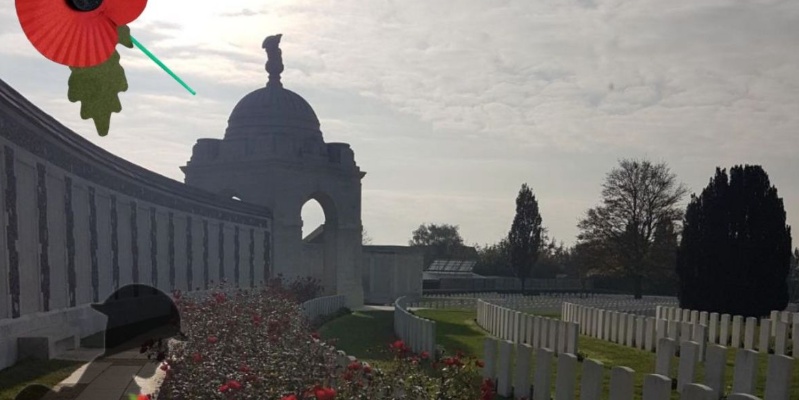 Please click on the attachment below to read our most recent remembrance newsletter:
Please click on the attachment below to read our most recent remembrance newsletter:

